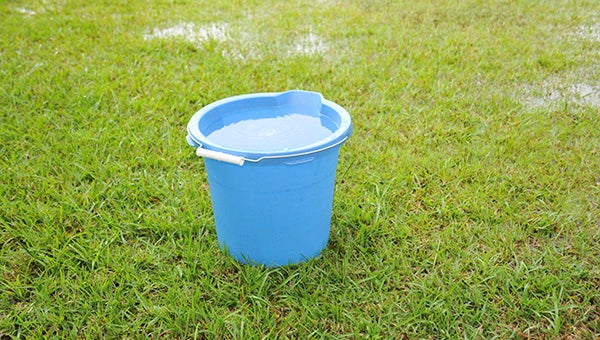Squash mosquito breeding grounds
Published 7:00 am Thursday, July 2, 2015

STANDING WATER: The MSDH suggests emptying buckets filled with water. These containers are prone to mosquito infestations.
Photo by Cassandra Favre
Summer has officially begun and with that comes family vacations, trips to the beach and outside pests including mosquitoes.
According to the Mississippi State Department of Health, mosquitoes carry four main types of viral diseases including West Nile Virus, St. Louis encephalitis, LaCrosse encephalitis and Eastern equine encephalitis.
WNV can lead to meningitis or encephalitis and has been reported in horses, birds, mosquitoes and humans, the MSDH website states, while SLE primarily affects the elderly. It is the most common disease carried by mosquitoes in Mississippi. Cases of LAC usually occur from spring to fall and affect children younger than 16. EEE can occur in humans, but the majority of reported infections occur in horses.
Chikungunya, a mosquito borne illness prevalent in the Caribbean, is rarely fatal, the MSDH website states, but can cause fever, flu-like symptoms and pain and swelling in the joints.
Along with providing information about these various diseases, the MSDH’s website also suggests a variety of preventative measures to avoid mosquito-borne diseases.
It’s important to avoid places and times when mosquitoes are the most active, which is usually in the evenings and mornings. If people are outside during a mosquito’s active hours, the MSDH suggests wearing shoes, socks, long pants and a long-sleeved shirt, utilizing mosquito netting and wearing an insect repellent that contains DEET or is registered with the Environmental Protection Agency.
There are many things that can be done around the home to keep mosquitoes away.
The MSDH website suggests repairing failed septic systems, keeping grass cut short, disposing of old tires, frequently changing the water in bird baths, wading pools and other containers, covering trash containers, cleaning clogged roof gutters, repairing ornamental pools or stocking them with predatory fish, cleaning and chlorinating swimming pools and keeping drains, ditches and culverts free of grass clippings, weeds and trash so water drains properly.
Mosquitos often breed in containers filled with standing water, so the MSDH encourages residents to use the tip and toss method, which includes rinsing water from these containers once a week and throwing unneeded containers away.
Officials in Picayune and Poplarville also take measures to prevent mosquitoes within city limits.
Picayune Public Works Director Eric Morris said his department divides the city into four sections and covers the city on a weekly basis.
Mosquito spraying begins the first of May and generally lasts until the end of October or through November, depending on the weather conditions.
“We spray four nights a week and spray a different section of the city each night,” Morris said. “The treatments are conducted with a truck equipped with a sprayer in the rear. We also perform foot treatments to treat specific areas.”
Morris said residents in Picayune can either call 311 or 601-799-0602 to report mosquito infestations.
“We investigate every complaint that comes through and respond accordingly,” Morris said.
Poplarville City Clerk Jody Stuart said every Thursday, beginning the first week of May, city officials spray within city’s limits.





